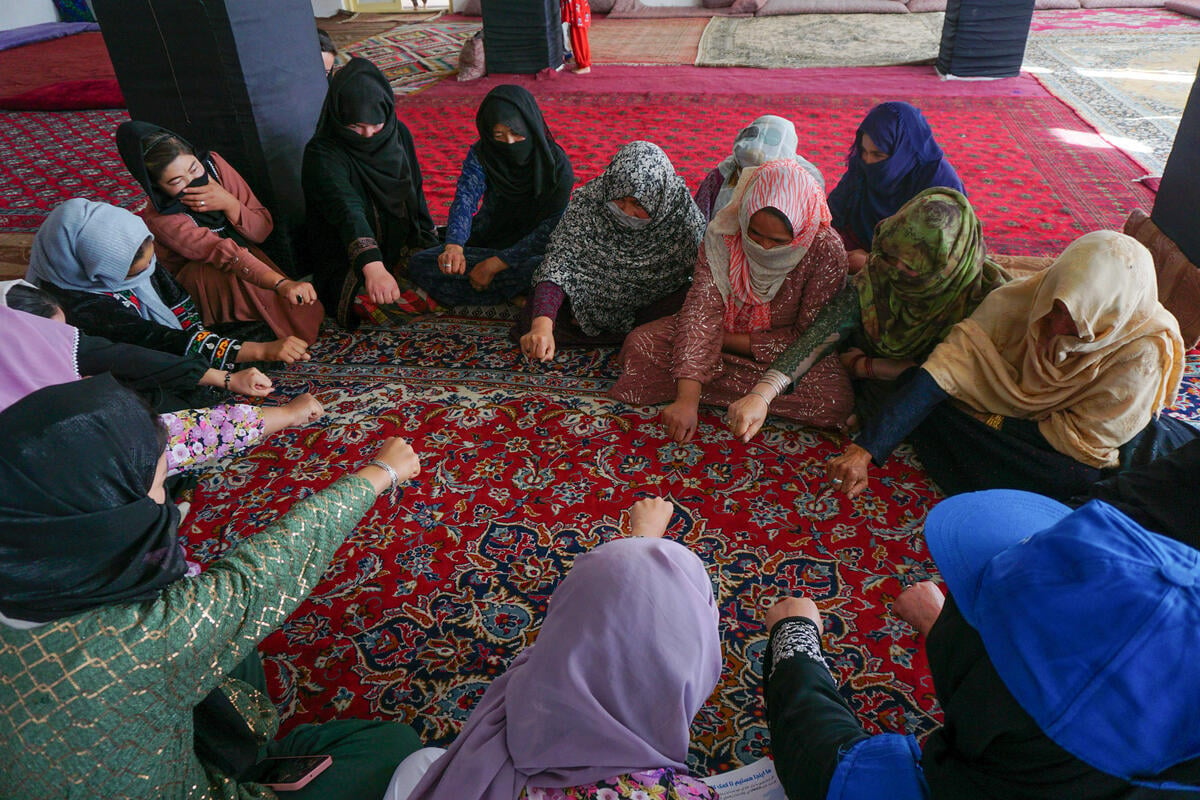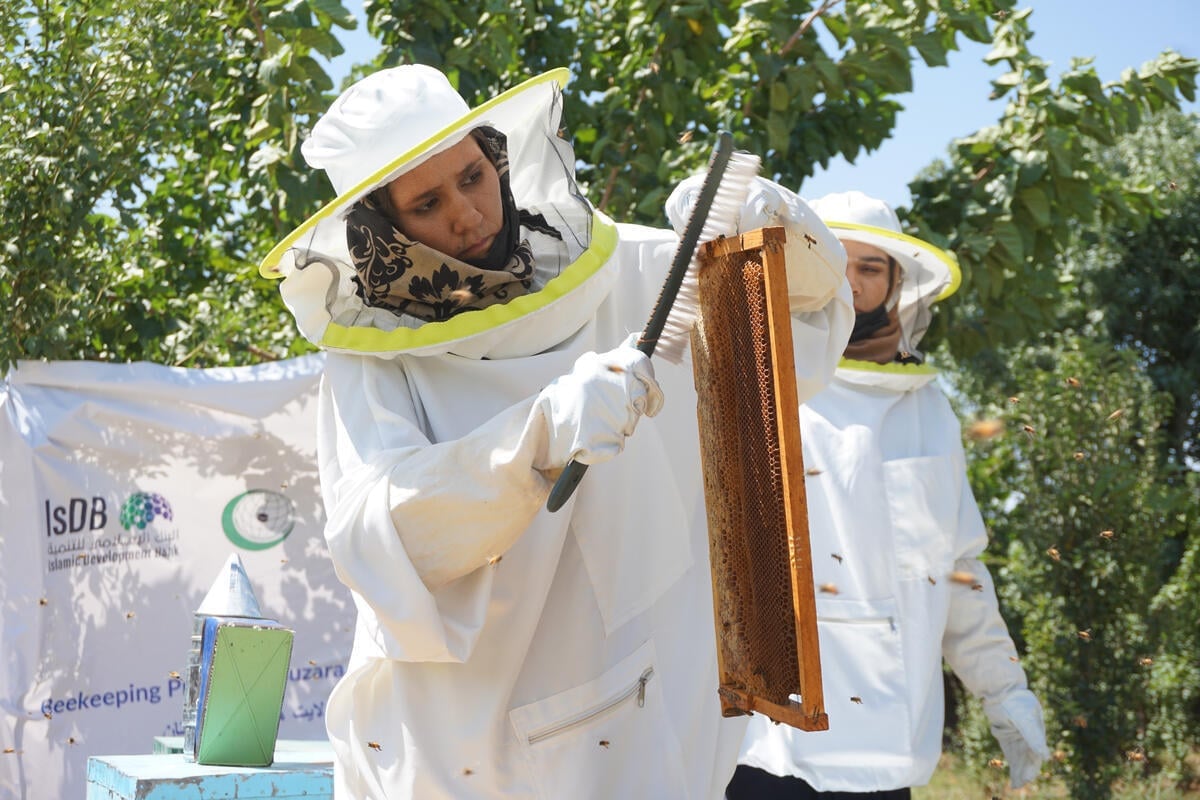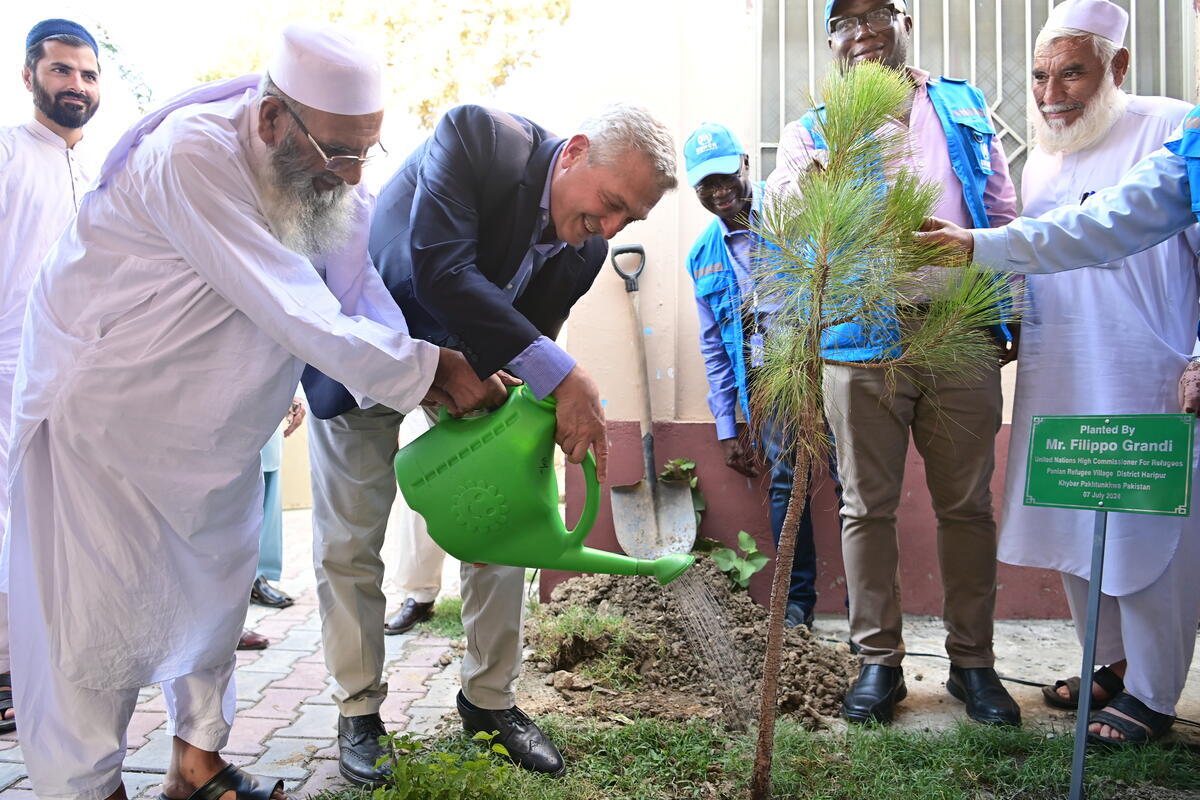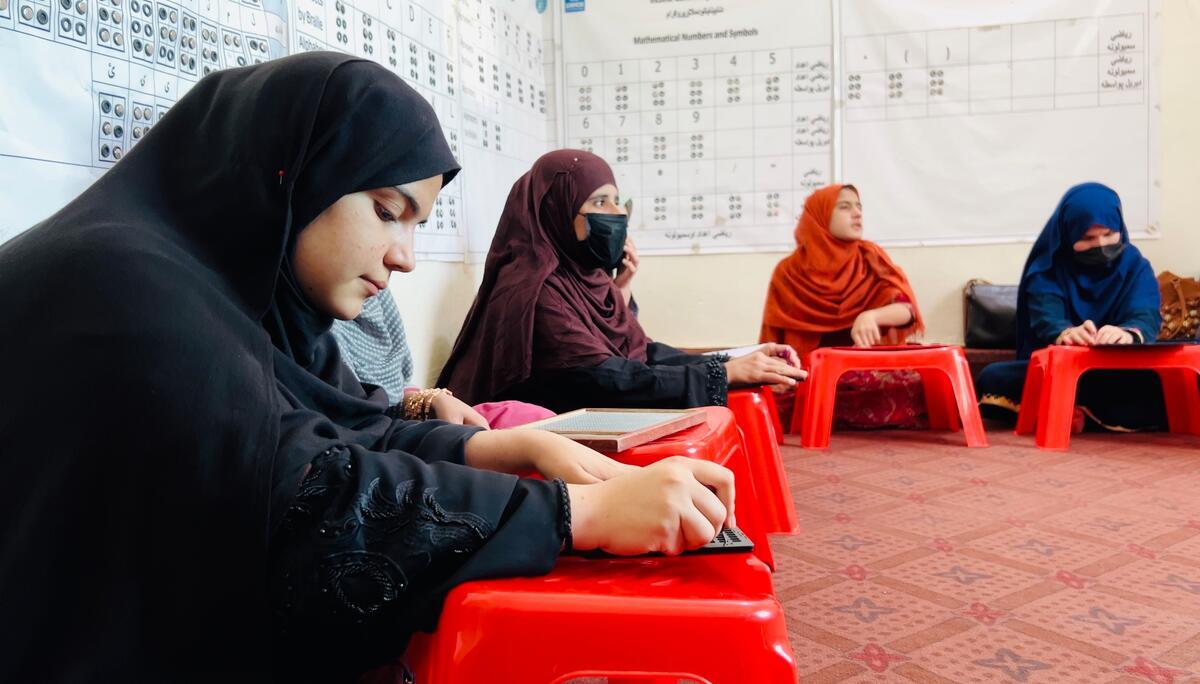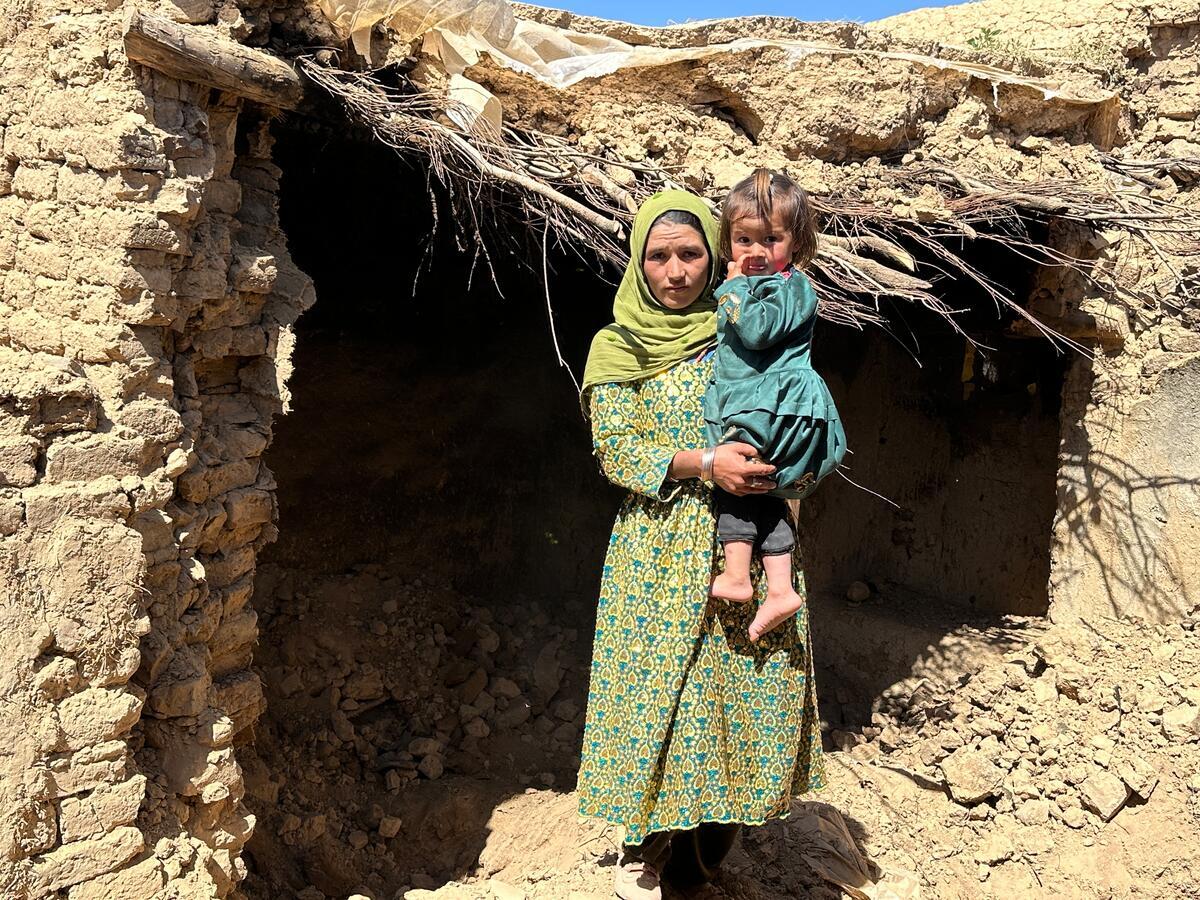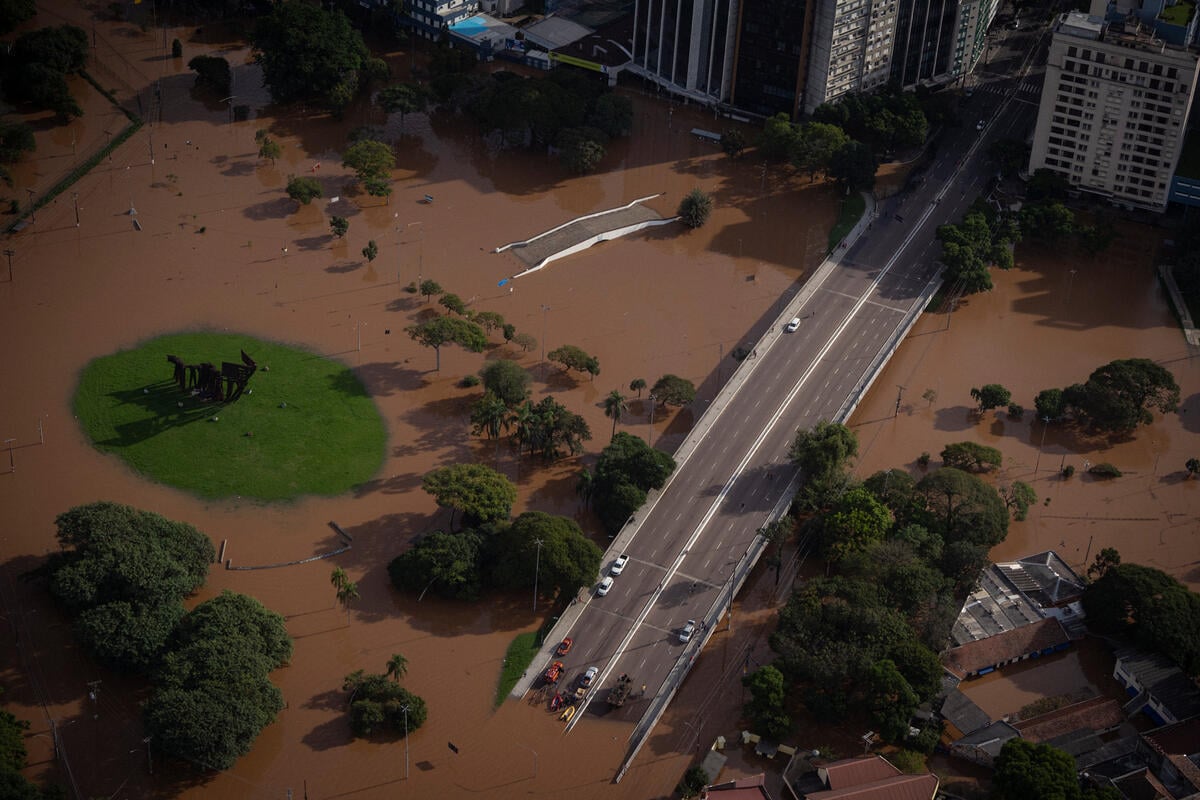Feature: Afghan refugees respond to signs from home
Feature: Afghan refugees respond to signs from home

QUETTA, Pakistan (UNHCR) - It takes more than 1.3 million people to convince Haji Abdul Rauf that now is a good time to go home. Despite the extraordinary number of refugees who have gone back to Afghanistan in the last five months, this refugee leader wanted to see for himself before deciding to return.
Haji Abdul Rauf, who represents a section of the Uzbek minority at Latifabad refugee camp, near Baluchistan's provincial capital of Quetta, has just come back from a "go-and-see" visit to his native province of Kunduz in northern Afghanistan.
"Our community, after noticing other refugees repatriating to different parts of Afghanistan, decided to send three elders including me to find out about the actual conditions at home," said Rauf, a white-bearded figure in his mid-70s.
He added, "The situation in Afghanistan has drastically improved, as I could not see any more in-fighting and the general situation looked to be calm and stable."
While in Kunduz, his team also met the local Afghan authorities and held discussions with several non-governmental organisations (NGOs). "Red Cross promised to help us with our cultivation if we wanted to start farming again," said the refugee leader. He added that there was plenty of water for crops in Kunduz, a relief for farmers after several years of drought that contributed to the exodus from Afghanistan.
His team also witnessed the start of rebuilding after more than two decades of war destroyed much of the country's infrastructure. "We could notice road construction going on inside Afghanistan," he said.
Encouraged by such positive first-hand reports, Rauf's community has decided to go back to Afghanistan under UNHCR's voluntary repatriation programme.
But not everyone at Latifabad is convinced that stability has returned. Saif Ullah is sceptical about returning to Mazar-i-Sharif in northern Afghanistan. Recent repatriation plans were put on hold after he received news of insecurity in his home area.
"Definitely we want to go back to Afghanistan, but my people are still not sure about the situation in Mazar-i-Sharif," he said with concern. "We had a message from some relatives who wanted us to come a couple of weeks ago, but now they have informed us to wait a bit for the situation to get clearer."
Like Ullah, many Afghan refugees depend on information from relatives and friends on the ground before making well-informed decisions on whether or not to go home.
The UN refugee agency insists that all returns must be voluntary, as its Senior Repatriation Officer Karim ul Huq said, "We can help as many families as they wish to repatriate from the camp on any day, but the decision to repatriate solely lies on them."
For those who decide to stay, help is still available at the camp from UNHCR and NGOs like the Association of Medical Doctors of Asia (AMDA), which has established a basic health unit in the camp to provide medical care. The health unit sees some 1,400 patients every week, including 35 to 40 cases of suspected malaria.
Latifabad camp currently houses some 6,350 Afghan refugees, most of them ethnic minorities who have chosen to live separately from the ethnic Pashtun Afghans, who are 10 km away in Mohammad Kheil camp.
Latifabad hosted 8,610 refugees from Afghan minority groups immediately after it was set up in January this year. However, 2,261 of them have already returned to Afghanistan since UNHCR started its voluntary repatriation programme in March.
Both Latifabad and Mohammad Kheil camps were established by the UN refugee agency after Pakistani authorities decided to relocate the refugees who had poured into urban areas after the start of the United States-led campaign against the Taliban regime in Afghanistan.


